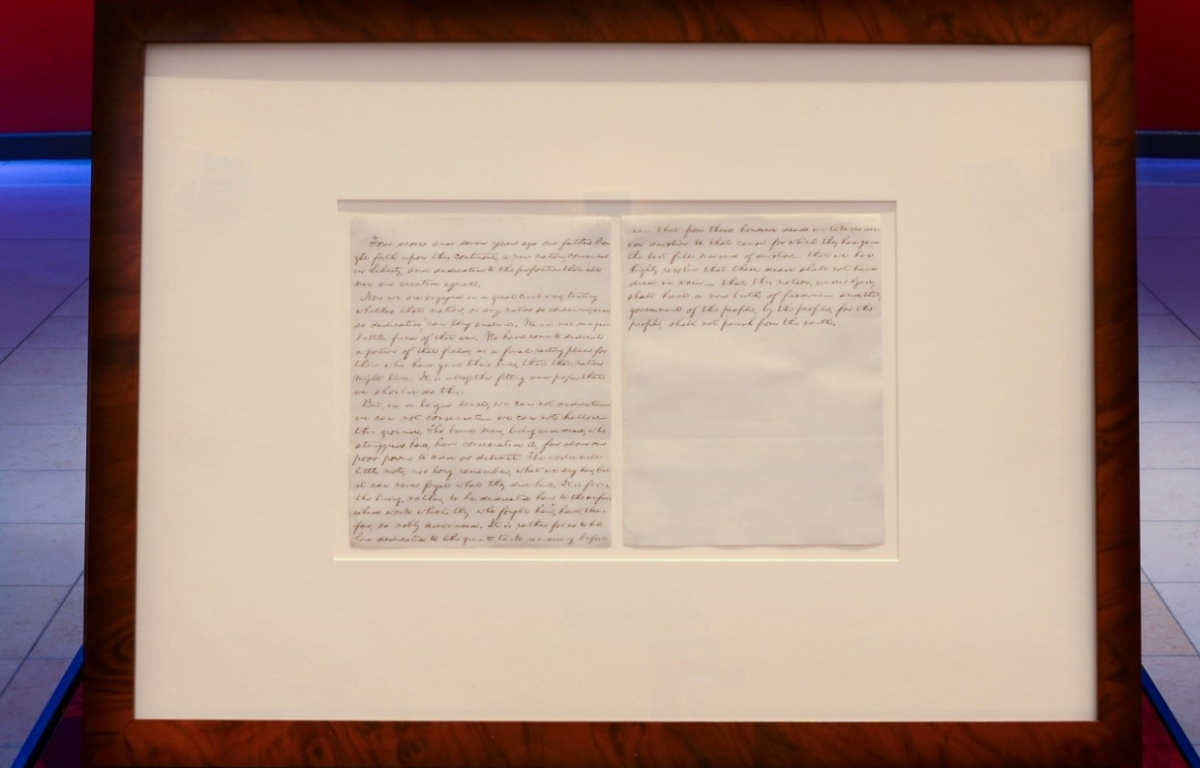Springfield, IL (CAPITOL CITY NOW) – Did you know the Abraham Lincoln Presidential Library and Museum is the only place in America where the public can regularly see Lincoln’s most famous speech written in his own hand? With that said, it’s about to come out of its climate-controlled vault for 10 days in honor of the 161st anniversary of Lincoln’s famous speech.
Delivered on Nov.19, 1863, during the Civil War, Lincoln’s Gettysburg Address was a powerful message of unity and equality. The speech was given at the dedication of the Soldiers’ National Cemetery in Gettysburg, Pa.
The document will be on display from Nov. 15 through Nov. 24, and admission to the museum will be free on Nov. 19.
“In 272 powerful words, Abraham Lincoln captured the pain of the Civil War and the truth of what was at stake: a new birth of freedom,” said Christina Shutt, executive director of the Abraham Lincoln Presidential Library and Museum. “This handwritten copy of his address is a national treasure. We hope offering free admission allows more people to appreciate it in person.”
Visitors will also have the option, while it is on display, to pay $5 to view the document without touring the rest of the museum.
Students from Springfield’s Japanese sister city, Ashikaga, are planning to visit the museum and recite the address to mark the anniversary.
Lincoln Historian Christian McWhirter will discuss what inspired Lincoln to write it and what message he may have been trying to send to his divided nation at 12:30 on Nov. 21 and Nov.22.
The ALPLM copy is one of five known handwritten copies of the Gettysburg Address in existence. One is housed at the White House, one at Cornell University, and two at the Library of Congress.
The State of Illinois has owned this edition of the address, known as the Everett Copy, since 1944, when the state’s children helped raise money to buy it from private owners.
The ALPLM also offers a webpage (www.PresidentLincoln.Illinois.gov/gettysburgaddress) that provides an up-close look at the presidential library’s copy of the speech.



